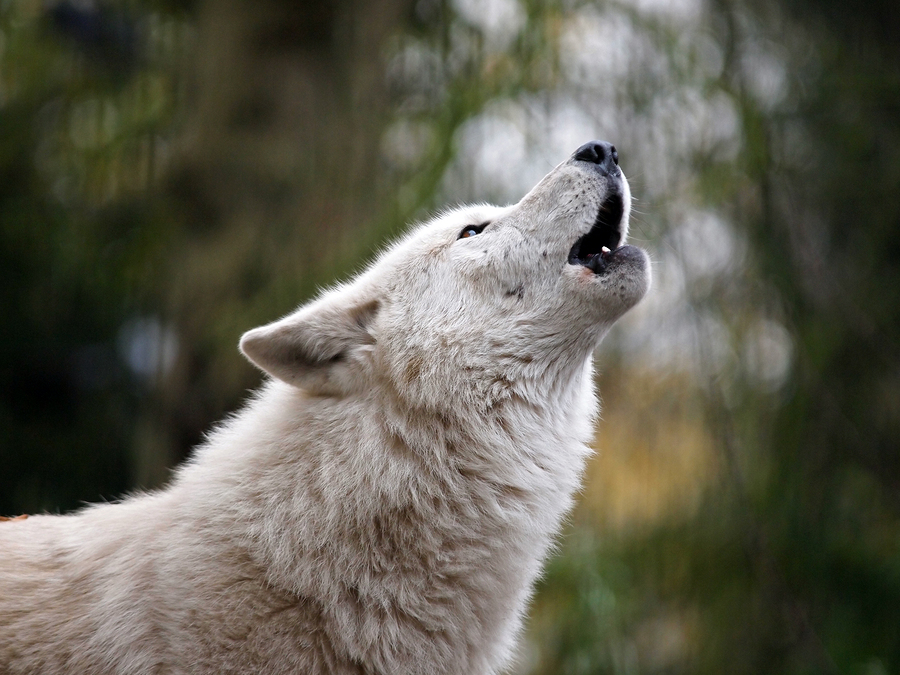A reader had a question about barking dogs. No, not how to get them to stop, but why wolves — who are the same species as dogs — don’t do it!
Q: I read recently that wild dogs like wolves don’t bark. How come dogs do?
A: Wild dogs aren’t silent, that’s for sure. They howl and yip and whine, but they don’t make the percussive and repetitive sound that we know as the bark. It’s one of the behaviors that separates dogs from wolves.
A Hungarian ethologist (someone who studies animal behavior) named Csaba Molnar suspects that dogs bark because, well, we designed them to. In several studies published in various scientific journals, he hypothesized that a dog’s barks share information about his emotions or surroundings and that humans are able to understand what dogs are communicating with their barks.
In an article on Wired.com, Brandon Keim explains the results of one of Molnar’s studies:
“Molnar’s statistical algorithm showed that dog barks displayed common patterns of acoustic structure. In terms of pitch and repetition and harmonics, one dog’s alarm bark fundamentally resembled another dog’s alarm bark.”
That makes sense because it’s important for people to recognize an alarm bark quickly.
Other studies found that people could reliably identify the context of different dog barks. People with different experience with dogs were asked to describe the emotional content of several artificially assembled bark sequences based on five emotional states: aggressiveness, fear, despair, playfulness and happiness. The researchers found that people with different levels of experience with dogs described the emotional content of the bark sequences similarly.
According to study summaries, the authors suggest that dog barking emerged through selective processes and that dog barks may present a functional system for communication in the dog-human relationship.
The other thing to know about barking is that in wolves, it’s a behavior seen only in juveniles. When we domesticated dogs, it’s likely that we selected for more friendly, less threatening behavior and appearance, and perhaps the bark accompanied those traits.
All this and more, including how to rehome a pet, in this week’s Pet Connection!


